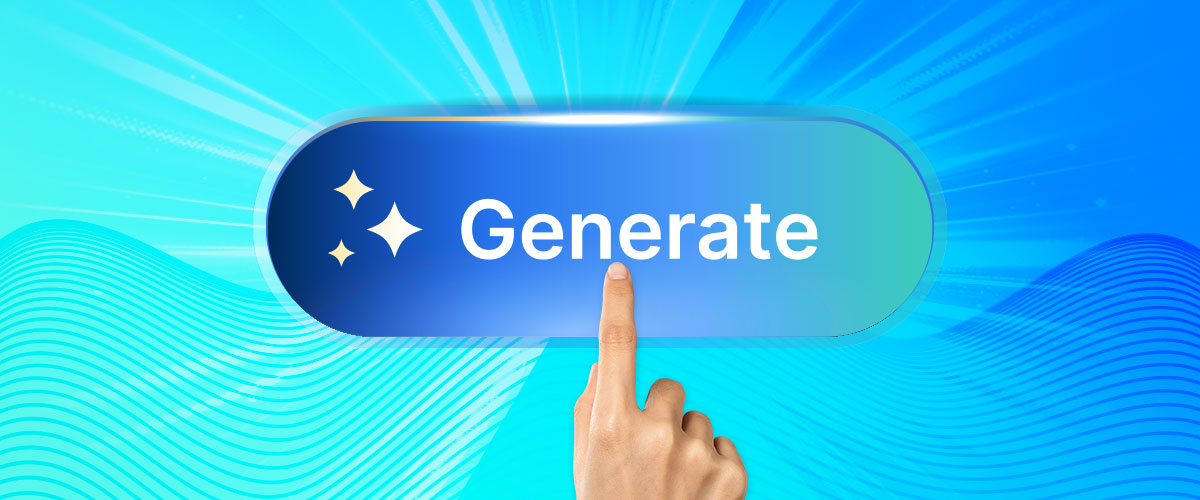Content creators face ever-growing demands for speed, quality, and scale. Artificial intelligence is now a practical, widely used tool that enhances human creativity by streamlining workflows and strengthening the content creation lifecycle—however, the trick is to apply it responsibly.
Here’s how content teams are using AI and LLMs for content creation and workflows as we head into 2026.
Content Ideation & Creation
Content strategists use AI and LLMs as a co-author to accelerate the brainstorming and drafting phase, align with brand voice, and eliminate creative bottlenecks.
Brainstorming
An essential part of the content creation process is brainstorming or coming up with ideas and different angles for blog posts, videos, social media posts, and other marketing assets. The ideation process can be very time-consuming for human creators. AI platforms and tools can generate ideas and creative prompts to help kickstart the ideation phase.
For example, writing teams can use researched keywords, target audience interests, and business goals to create a brand-specific prompt to generate content. AI tools can generate outlines and general bullet points to give writers a foundation to refine and develop further. This part of the process helps expedite the start of the workflow and alleviates any roadblocks that may be obtained, such as writer’s block.
Key Takeaway: Yes, AI platforms and tools are great catalysts for jump-starting the brainstorming process. However, human comprehension is still required to fully vet generated ideas for accuracy and relevance.
Outlining & Drafting
The initial content drafting is the next phase of the content creation lifecycle, where AI tools can support a writer’s process. After refining an outline, establishing an outline, and confirming formatting and flow, writers can leverage AI platforms to create a rough draft.
The AI-generated draft serves as a starting point. It provides writers with something to build upon and refine rather than starting from scratch. This type of generation encourages writers to spend their time enhancing the content by adding tone, personality, nuance, creativity, and experience. All things that have been identified as weaknesses of AI-generated content. Manual collaboration supports originality, relevancy, and higher-quality content creation.
Key Takeaway: A first draft is only as strong as the initial outline and prompts that the writer develops. Writers still need to understand the content’s overall goals and who it should target.
Content Workflows & Management
Content workflows and management determine how efficiently ideas move from concept to published work. AI helps reduce friction across these workflows by automating repetitive tasks, improving consistency, and enabling teams to focus more time on strategic and creative work.
Researching
AI powered search tools help writers accelerate research by quickly surfacing relevant information, summarizing large data sets, and identifying credible sources. This reduces time spent gathering background material and allows teams to focus on analysis, insight, and narrative development.
AI can also assist in validating claims by cross-referencing data points and identifying patterns across multiple sources. While human oversight remains essential for accuracy and context, AI significantly improves research efficiency and depth.
Editing
AI can streamline the editing process by automating proofreading, grammar checks, and early brand compliance reviews. Using structured prompts or custom GPTs, teams can standardize edits for tone, terminology, and formatting, reducing inconsistencies across content.
This approach shortens review cycles and minimizes manual revisions, enabling editors to focus on higher level improvements such as clarity, messaging strength, and strategic alignment rather than mechanical corrections.
Creating Meta Tags
LLMs excel at summarization and information extraction, making them effective tools for generating meta titles, descriptions, tags, and summaries. These elements improve content organization, discoverability, and search performance when aligned with SEO best practices.
By automating meta tag creation, writers can ensure consistency across content assets while saving time during publishing workflows. Human review ensures final metadata accurately reflects intent, audience needs, and keyword strategy.
Key Takeaway: AI streamlines content workflows by accelerating research, standardizing editing, and automating metadata creation. These efficiencies reduce manual effort while improving consistency, discoverability, and speed to publish, with human oversight ensuring accuracy and strategic alignment.
Strategy & Performance Optimization
Once a draft is complete, AI tools can support optimization and refinement to increase content effectiveness. These tools can evaluate factors such as word count, sentence structure, grammar, readability, and keyword usage to surface actionable recommendations. However, these insights should be treated as guidance rather than directives. Human review remains essential to ensure the content flows naturally, aligns with brand voice, and follows SEO best practices. Writers and editors retain full ownership of final decisions, using AI recommendations selectively to support broader content and business goals.
Brand Compliance
AI can streamline brand compliance by automating early-stage content reviews before it reaches human editors. Using structured prompts or custom GPTs trained on specific brand voice, AI can flag inconsistencies, enforce approved language, and surface potential guideline violations early in the workflow. By scanning for tone mismatches, terminology misuse, and guideline violations, AI helps reduce rework and speeds up the approval process. This proactive screening ensures content aligns with brand standards from the outset, allowing editors to focus on higher value tasks such as messaging clarity, storytelling, and strategic alignment rather than basic corrections.
Predictive Analytics
AI powered predictive analytics enable teams to assess potential content performance before publication. By analyzing historical engagement data, audience behavior, and channel specific trends, these models can forecast how content is likely to perform across platforms such as search, social, and email. This insight helps teams prioritize topics, formats, and distribution strategies with greater confidence, reducing guesswork and improving return on content investment.
Content Gap Analysis
LLMs can identify content opportunities by comparing your existing content library against competitor coverage and evolving search trends. This analysis highlights missing topics, underserved keywords, and emerging audience needs that align with your brand and expertise. By addressing these gaps, content teams can build more comprehensive resources, strengthen topical authority, and create content that directly supports user intent and long-term SEO growth.
Key Takeaway: AI enhances content strategy by improving optimization, enforcing brand consistency, forecasting performance, and uncovering content opportunities, but its greatest value comes when human expertise guides final decisions to ensure quality, relevance, and alignment with business goals.
Final Thoughts
While AI tools and platforms provide a lot of value throughout the content creation process, human creativity, strategy, and review are always necessary. Writers must still upskill by developing their prompting skills to provide direction and guide AI. Additionally, writers must carefully evaluate and fact-check any AI-generated outputs. By combining AI advancements with human skillsets, experience, and strengths like emotional nuance, critical thinking, and creativity, writers can build efficient workflows while prioritizing accurate, relevant, unique, and high-quality content.
AI can transform your content engine, but only when it is implemented correctly. If you do not have the time or internal resources to build scalable, AI driven content workflows, our AI SEO service does it for you. We combine proven strategy, human expertise, and AI execution to drive consistent growth without added operational burden.





